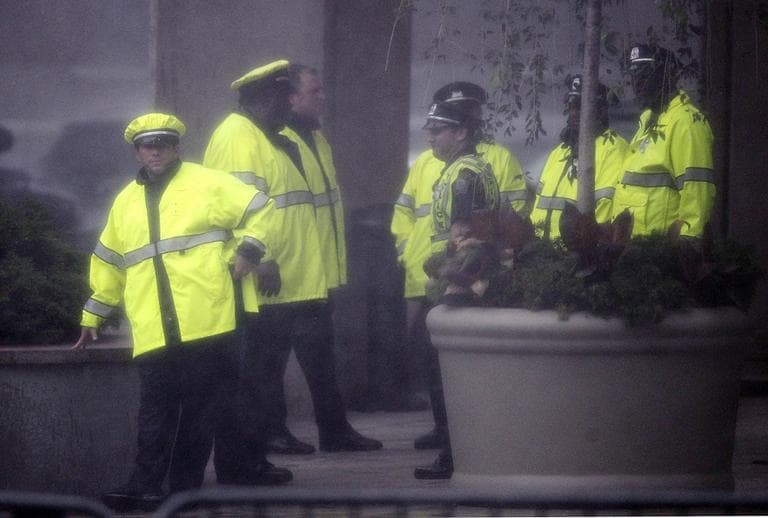Advertisement
Your Feedback: The 'Pax Centurion,' WGBH Jazz Cutbacks
Resume
On Friday July 6, we talked about a Boston Phoenix expose on the Boston Police Patrolmen's Association, and the bigoted opinions that appeared in their official union newsletter, the "Pax Centurion."
"Pith-Helmut" wrote on our website:
"The police force seems to be recruiting the very worst types of bullies. People cannot trust the police any more and it's a shame. Bad copys cause good people to turn away from the police force."
To which "Pancakeman-173" responded:
"Our business is saving lives and helping people. Trust me, we're good at it. Police humor is police humor. If you do not like it, read the Globe."
Hank Mardukas disagreed. He wrote:
"Regardless of whether or not [it's] funny, when it's published, it becomes public. You can crack all the yokes you want at home...but you serve a public duty and the [Pax Centurion] is a representation of you."
On July 9, we sat down with the author of a new book attacking the local food movement, Pierre Desrochers.
"Cindy-CB" didn't buy Desrochers argument:
"Whatever. I would be the last person not to want imports, but when food is available locally, that's when you buy it."
"Quincy" noted that
"none of this would be a problem if the cost of CO2 emissions were ... [factored] into the cost of [all food]...Then individual consumers [who are willing to pay the actual cost] could purchase whatever they want, at any time of year."
Finally, music lovers had their say after our coverage of WGBH's cutbacks to its jazz programming.
Bruce Maimes wrote:
"The audience aged with the format, many have died off, and the young people into jazz are getting it elsewhere. It's time to accept that music formats are in competition with the internet and iTunes, and some formats are losing. Yes, it's sad, but when you think about how people would like their donations used (to have the biggest impact for their dollar) then how can people defend spending donors' discretionary dollars on a format that serves only a tiny number of people?"
How To Get In Touch:
- Twitter: @radioboston
- Facebook: www.facebook.com/radioboston
- Email: radioboston@wbur.org
- Voicemail: (617) 353-1137
- Snail Mail: 890 Commonwealth Ave., 3rd Fl, Boston, MA 02215
More:
This segment aired on July 10, 2012.